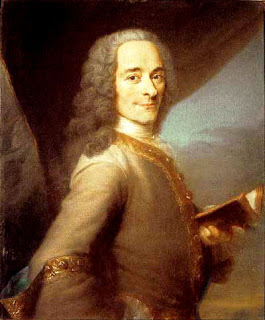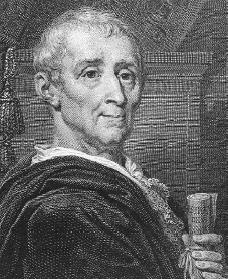The desire to fight injustice, la miseria e l’ignoranza terrena portò gli illuministi a riflettere attentamente sull’epoca in cui vivevano.
Bisognava usare la ragione per esaminare la società, le usanze, le leggi per comprendere ciò che doveva essere cambiato e migliorato.
Fu condannata l’assurdità della guerra che il “secolo di ferro” aveva conosciuto molto bene: “tutti i vizi di tutte le età e di tutti i Paesi del globo riuniti assieme non uguaglieranno mai i peccati che provoca una sola campagna di guerra” affermò il francese Voltaire , uno dei più importanti intellettuali dell’Illuminismo.
L’economia
Some scholars began to care about a topic that had previously affected only the kings and their ministers' s economy. One has to understand what were the best choices for increase the wealth of a country .

Adam Smith
Scotsman Adam Smith (1723-1790), considered the founder of this discipline of study, he argued that every individual should be left free to conduct its business ( liberalism ) Because if the government had declined to intervene with regulations and taxes, businesses would have developed rapidly, bringing prosperity and welfare to an increasing number of people.
policy
The Enlightenment claimed the right to freely express their views and criticisms also about the laws and how to govern. If this idea today may seem normal in the eighteenth century was a novelty. Then, except in England (see the section on Glorious Revolution) and the United Provinces, all over Europe claiming that the power of the sovereign derived directly from God
The Enlightenment rejected this principle and stated that the first duty of a ruler was to ensure the happiness public (ie everyone in the country), and then govern in 'subjects of interest.
If this idea was shared by all the enlightened, not everyone agreed on how best to achieve this result.

Voltaire
Some, like Voltaire , were convinced that the ideals of the Enlightenment would fascinated that these rulers and listening to the advice of the philosophes - so they were called the French Enlightenment) would rule to modernize their country. This theory was called enlightened despotism. (from despot à absolute ruler)

Montesquieu
It was this idea of \u200b\u200bthe Baron de Montesquieu (1689-1755) . He was convinced it was necessary to create a form of government where the king's authority had precise limits .
Montesquieu ammirava l’Inghilterra dove il potere del Parlamento frenava quello del sovrano (ricorda la redazione del Bill of Rights dopo
Secondo Montesquieu per governare un Paese dovevano essere messi in pratica tre compiti fondamentali :
- FARE LE LEGGI (potere legislativo)
- FARLE APPLICARE ( potere esecutivo)
- GIUDICARE E PUNIRE chi non le rispetta (potere giudiziario).
Per avere un governo giusto e non oppressivo bisognava impedire che questi tre poteri fossero concentrati nelle mani di una sola persona . Andavano quindi separati e tenuti divisi.
Questa teoria, che Montesquieu scrisse nella sua opera più famosa L’esprit de loi s ( Lo spirito delle leggi ), pubblicata nel 1748, è oggi adottata da tutti i Paesi democratici del mondo. Allora però venne ritenuta pericolosa, tant’è che, nel 1751, venne inserita nell’Indice di Libri Proibiti.

Jean-Jacques Rousseau
Un’idea ancora diversa era quella del ginevrino Jean Jacques Rousseau , aspramente critico nei confronti della proprietà privata e del progresso che, secondo lui sono stati la vera causa dell’infelicità umana. Affermava che l'uomo fosse, in natura, buono, un " buon selvaggio ", ma che fosse stato corrotto in seguito dalla società civile e colta; vedeva questa come un prodotto artificiale nocivo per il benessere degli individui, portandoli alla degenerazione e al vizio.
“Il primo uomo che, avendo recintato un terreno, ebbe l'idea di proclamare questo è mio, e trovò altri così naive as to believe him, he was the real founder of civil society. How many crimes, how many wars, how many murders, how many miseries, many horrors would have saved the human race who, pulling the stakes or filling in the ditch, had shouted to his fellow men: "Beware of impostor from listening to this, if you forget the fruits of all the land belongs to nobody, you are lost! ""
0 comments:
Post a Comment